No gift registry found click here to create new registry
Cart contain Gift Registry Items cannot add products
Occupation Journal
13.00 JOD
Please allow 2 – 5 weeks for delivery of this item
Add to Gift RegistryDescription
A captivating literary and historical record, Jean Giono’s Occupation Journal offers a glimpse into life in collaborationist France during the Second World War, as seen through the eyes and thoughts of one of France’s greatest and most independent writers.Written during the years of France’s occupation by the Nazis, Jean Giono’s Occupation Journal reveals the inner workings of one of France’s great literary minds during one of the country’s darkest hours. A renowned writer and committed pacifist throughout the 1930s–a conviction that resulted in his imprisonment before and after the Occupation–Giono spent the war in the village of Contadour in Provence, where he wrote, corresponded with other writers, and cared for his consumptive daughter. This journal records his musings on art and literature, his observations of life, his interactions with the machinery of the collaborationist Vichy regime, as well as his forceful political convictions. Giono recounts the details of his life with fierce independence of thought and novelistic attention to character and dialogue. Occupation Journal is a fascinating historical document as well as a unique window into one of French literature’s most voracious and critical minds.
Additional information
| Weight | 0.32 kg |
|---|---|
| Dimensions | 2.27 × 14.64 × 16.46 cm |
| PubliCanadanadation City/Country | USA |
| Author(s) | |
| Format Old` | |
| Language | |
| Pages | 200 |
| Publisher | |
| Year Published | 2020-3-20 |
| Imprint | |
| ISBN 10 | 1939810566 |
| About The Author | Jean Giono (1895-1970) was a novelist, essayist, and playwright, and one of the most prolific and respected French writers of the 20th Century. Born to a modest family in Provence, he was conscripted to the French Army in the First World War, and the horrors he experienced cemented his lifelong commitment to pacifism. His first major literary success came with Colline (1929) which won him the Prix Brentano. He continued to publish novels and political writings during the 1930s, and his strict pacifism led him to be briefly imprisoned for collaboration before and after the Nazi occupation of France. After the Second World War Giono continued to gain success as a novelist, and many of his books were adapted into films. He received the Prince Rainier of Monaco Prize for lifetime achievement in 1953, was elected to the Academie Goncourt in 1954, and became a member of the Literary Council of Monaco in 1963. About the translator: Jody Gladding is a translator and poet. She has published four poetry collections, Translations from Bark Beetle, Rooms and Their Airs, and Stone Crop, which was the winner of the 1992 Yale Series of Younger Poets competition. Her translations from the French include Jean Giono's Serpent of Stars and Pierre Michon's The Eleven. |
"For Giono, literature and reality overlap the way that waves sweep over the shore, one ceaselessly refreshing the other and, in certain wondrous moments, giving it a glassy clearness."–Ryu Spaeth, The New Republic "Giono's voice is the voice of the realist; his accents are the accents of simplicity, power and a passionate feeling for a land and a people that he must love as well as understand."–The New York Times "The journal gives a vivid sense of the French countryside during the war years, the physical beauty of Provence moving through the seasons, contrasted with the fears and unease of occupation. Giono himself, erudite, questioning, refusing to allow himself to be buffeted by the opinions of others or steered off a course he personally felt to be morally right, comes across as courageous and decent, a writer who fell just on the wrong side of the enduring French debate about les années noires, but who lived to see himself recognized as one of the finest writers on the natural world." — Caroline Moorehead, Times Literary Supplement"Jean Giono’s Occupation Journal is a fascinating record of life under Nazi occupation in France, and an insight into the daily reading and writing practices of a dedicated author…To a timely effect, many of Giono’s reflections also tackle the problem of isolation, of drawing upon inner resources, and of the consolation of literature…The journals in their entirety compose a captivating account of a sensitive, dedicated writer’s quotidian life, and an insight into how he faced both the exterior and interior struggles of his time." — Sarah Moore, Asymptote"The importance of this volume is the depiction of the time with difficulties, unpleasantness and compromises often shown in minute detail . . . visceral and personal, it will raise questions in readers' minds as to how they would or could react in similar circumstances." — NB Magazine "Curious and wide-ranging, his entries . . . invite delight and interest, covering a broad range of topics at a pace that begs to be savored . . . Occupation Journal is a gem of a historical memoir that includes blasts of beauty, art, and human observation." — Susan Waggoner, Foreword Reviews"Elegantly translated by Jody Gladding, the book is a fascinating account of ordinary life during extraordinary times…As diary entries offering a captivating portrait of an artist at work, a man under pressure, and a country in turmoil, Occupation Journal is a compelling read." — The National (UAE)"There are certain books you feel you’ve needed without even knowing whether they exist; and when finally you read such a book, it becomes indispensable to comprehending the most haunting insistences of human experience. I’m speaking here of Occupation Journal by Jean Giono, brilliantly translated by Jody Gladding. This journal is full of harrowing wartime incident, an almost desperate reliance on literature, the severest lyricism Giono needed to chronicle thinking and feeling deeply in a world gone mad." — Howard Norman "Giono's Occupation Journal is a fascinating book. It juxtaposes the intense moral and ethical dramas of a world at war, replete with violence and surrounded by danger, with the inanity of the every day. Despite the war, grandiose dramas play out – scheming and petty neighbours trying to pull one over each other; lovesick servants and farm workers entangled in romantic triangles. All of the everyday comedy and drama of the small French village play out while bombs fall overhead and collaborationist priests are gunned down in their chapels…Translator Jody Gladding does a superb job of it, retaining Giono's nuanced sarcasm and sense of humour." — Hans Rollmann, Pop Matters |
|
| Other text | Jody Gladding has beautifully rendered Giono’s inner voice, in all its moods and registers, lyrical, cynical, and reflective. — Paul Eprile There are certain books you feel you’ve needed without even knowing whether they exist; and when finally you read such a book, it becomes indispensable to comprehending the most haunting insistences of human experience. I’m speaking here of Occupation Journal by Jean Giono, brilliantly translated by Jody Gladding. This journal is full of harrowing wartime incident, an almost desperate reliance on literature, the severest lyricism Giono needed to chronicle thinking and feeling deeply in a world gone mad. — Howard Norman |
| Excerpt From Book | 1943 September 20 There is such confusion in people’s minds that, even among the best of my acquaintances, no one knows how to conduct himself according to the simple rules of nobility and grandeur anymore. In the fellowship of the Contadour, R.B. was a comrade who seemed to me capable of understanding and applying those rules on all occasions. He was clear-sighted and bright, and if it worried me knowing that he regularly spent time with reserve officers, I imagined that his social position demanded it (teaching at the teachers’ college). His convictions, if he was expressing them honestly, were pacifist and humane. He could not retain his integrity in the tangle of propaganda. It’s hard for me to imagine that this is the same man now mixed up in arms drops, who runs off and distributes machine guns to young men hidden in his county. I know—if I take into account the terrible worries eating at his heart—(his love for M., his crazy son) there are certainly excuses for his desire to escape at any cost his life’s inconceivable misery. All the same, I was hoping he would escape in the direction of nobility. In our modern mechanical world, it’s clearly very tempting to embrace the cause of a religious war. It must give one the impression, despite everything, that he is a thinking being. And, after the fate dealt to man in 1930–1940, it must suddenly be so invigorating that it’s difficult to resist. But the quest for the Grail made the knights-errant gallop in a straight line. Even Don Quixote walks straight. Today it seems as though the Grail has shattered and they are chasing all the scattered bits of it in every direction. They charge blindly, noses in the air, radios behind them in the saddle, newspaper helmets fastened securely on their skulls. Those who have donned secret papers, clandestine publications, think they are wearing the most magical helmets of all. Not a single head remains bare. For my part, I consider it important above all not to be duped. That’s what I peacefully strive for. I know the deep wretchedness of our generation and the ones that follow, and I have tried, with what means I have, to provide a small cure. I recognize that I can do nothing. Lacking either enough intelligence for problems that are too great or enough simplicity for problems that are so hugely simple they defy mathematics, I would nevertheless reserve the right to laugh and comfort myself with scorn, precisely applied. English generosity; American civilization. Last week, there was an assassination attempt here against the head of the militia. He was returning from the cinema with his family when an armed stranger shot at him. Ch. shot back and killed his assailant. At which point a sort of impromptu legend started. The assailant, who had come from Marseille to kill Ch. (it seems he confessed before dying), was a miner from the north of France, his children had been killed in a bombardment, and his wife, I don’t know what, something terrible, I dare say, no doubt raped by the Uhlans. He became the hero. Almost everyone attended his funeral, Dr. G. and his wife prominently at the head of the line. Dr. G. is a perfect and pure careerist, an opportunist, an ambitious man who dreams of a seat on the district council. That’s clear to everyone here. But he was much admired behind the hearse. Of course Dr. G. is not a Communist, he made two or three million in a few years (he arrived here very poor), and is an admirable specimen of the ordinary materialist. He’s only trying to position himself for the next wave of “honors.” That’s nothing. It’s only that no one thought to explain this in a simple way. The man from Marseille was really only a paid assassin. Because why—even as martyr and hero—especially as hero—why come to assassinate Ch.? The back wheel of the wagon. Ch. is not exactly anyone important. At present, it’s simply personal accounts being settled. And personal business being conducted (Dr. G.). All that is fine, I’m not asking Dr. G. or the assassin or Ch. to be Lancelot of the Lake or Percival, I only ask that no one tries to make me believe they are. Wonderful weather, exhilarating wind coming from the sheep plateaus. Cool and crisp, and those earth tones and bruised sky that announce autumn. The sound of the bell that rings at noon undulates in the wind like a cracked whip. The air is delicious to breathe. I am going to start writing again. These days. I need a serious discipline for mind and body. Plans for Fragments d’un Paradis . Never forgetting that after Don Quixote (I must begin the discussion with myself on this book. In Doré’s illustrations, Don Quixote resembles my beloved father, but embittered. My father was good and gentle, clearly readable in his entire body), never forgetting that Cervantes finished his life writing the The Trials of Persiles and Sigismunda . I am anxious for Jacinto G. to send me this book in Spanish; I’m going to try to learn enough Spanish to read it. Fragments must be an adieu to the poetic (as Don Quixote is an adieu to grandeur —and not a satire on chivalry. What pettiness! Imagine Cervantes wanting to mock chivalry! And he would finish his life writing (with the most careful attention to the form and spirit of it) a novel of Chivalry! No, he wanted to say a melancholy farewell (hence Don Quixote’s madness) to grandeur). Fragments must say farewell to the poetic, to lyricism, to the “lie” without which there is no art, by which I mean the subjective. Goodbye to romanticism, on the threshold of 1616, when truth, exactitude, the slice of life will be extolled (you’ll see) (but Maupassant was lying (was interpreting), but Gide lies (happily), but Eugène Dabit suffered and died for not knowing how to lie, that is, for not having the strength (first of all, the physical strength) to stomach “spectacles” in order to express them in the end as Van Gogh expresses a wheat field and a cypress. Because they know and he knew (E.D.) what it is that interests me, which is not the cypress or the wheat field. It is the cypress + Van Gogh and the wheat field+ Van Gogh. The mark. To leave his mark). Because how could he have been in step with Communist times? Finishing the third act of Voyage without proving anything. Having wanted to demonstrate a slowing of the action in the second part of Act 1, an act I am not at all happy with. Writing the text for Virgil that Corrêa wants and immediately afterwards (before the end of the year if possible), I hope to begin Fragments . Because if I wrote Le Voyage for the theater, it’s so that I might finally have a little peace financially (I must speak a little about my legend one of these days, and in particular about my “wealth” (in 1940, living on 20,000 for the whole year, nine people, and actually giving the figures) because what Vlaminck says about me he says relying on legend alone, journalistic and cinematographic legend). (I am not suspicious enough of visitors. Too nice.) Tino Rossi aside, of course. Because he’s not completely wrong. There is a little of that. But I believe (I may be wrong. I don’t dispute it) I believe that’s all there is. Writing Fragments for my own pleasure, as I like, at my own pace (which is slow), taking the most pleasure possible in the writing. Yesterday evening, Uncle did not return. Believed it to be the usual fit of drunkenness and expected to hear the doorbell during the night. This morning I realized that he had still not come home. It was Charles I heard having coffee. I wondered if Uncle might be dead in the pavilion, a stroke or from hanging himself. Suicide is a possibility with this hideous, horrible, arrogant, worthless but sensitive man who has turned everyone against him. Has made everyone detest him, even his own daughters, and yet, sometimes, a burst of grandeur, I thought to myself… this morning I went to see, to have a look in the pavilion with its door left open. I looked in the linden tree. Charles had the same thought. My mother, too. Charles went to look out the windows. He was not there, he told me. Then, later, while I was writing, I heard him coughing and clearing his throat below in the garden. He’d only gone on his usual binge. Too often (always) I judge others according to myself. I believe that’s what happened over the twenty years with Lucien Jacques as well. |
Only logged in customers who have purchased this product may leave a review.
Related products
-
On backorder 2-5 Weeks to Arrive
Add to Gift Registry17.00 JOD -
On backorder 2-5 Weeks to Arrive
Add to Gift Registry30.00 JOD -
On backorder 2-5 Weeks to Arrive
Add to Gift Registry12.99 JOD -
On backorder 2-5 Weeks to Arrive
Add to Gift Registry9.00 JOD

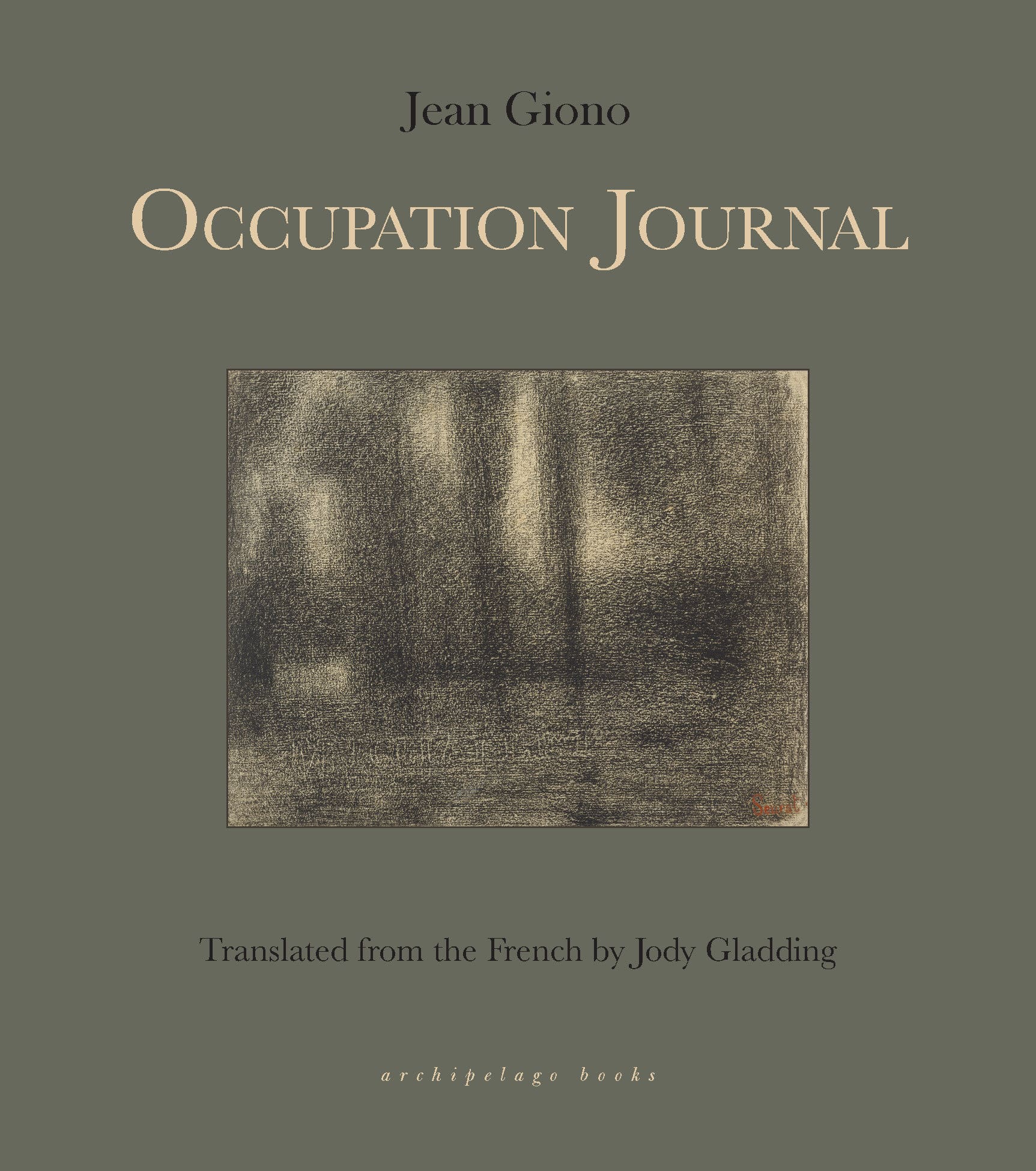
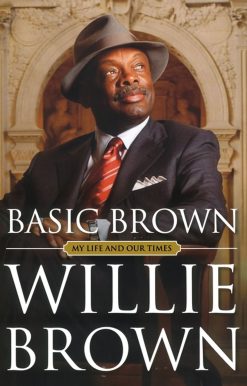
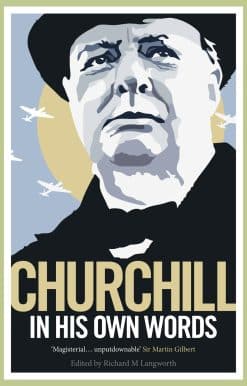
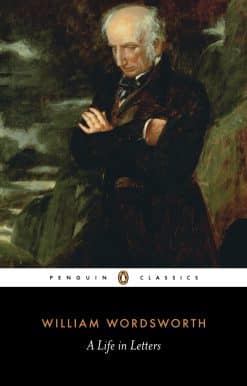
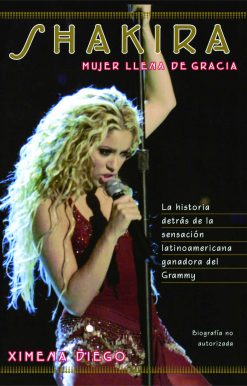
Reviews
There are no reviews yet.